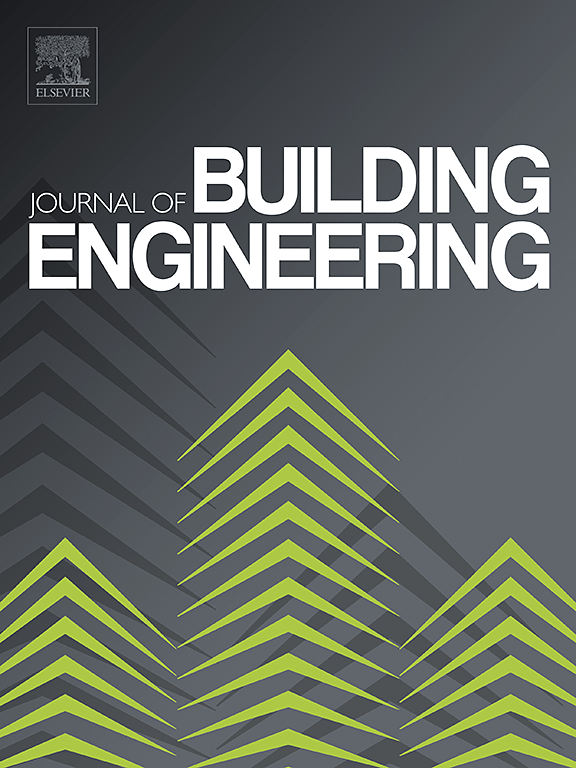Economic, policy, social, and regulatory aspects of AI-driven smart buildings
IF 7.4
2区 工程技术
Q1 CONSTRUCTION & BUILDING TECHNOLOGY
引用次数: 0
Abstract
The significance of this research depends on the fact that it thoroughly investigates the effective implementation of advanced technologies in smart buildings particularly automated systems in buildings, sensors, and data analytics, to enhance operational efficiency, occupant comfort, and sustainability associated with the incorporation of artificial intelligence (AI) technology into Building Management Systems (BMS). Improving the building's efficiency, sustainability, and the occupants' comfort is a prime goal of this research. However while attaining this, certain obstacles such as socioeconomic inequalities, data privacy protection, negotiating regulatory landscapes, and providing effective access to all the smart technologies make hurdles that need to be overcome and rectified. The Integrated AI-Driven Smart Buildings Framework (IAI-DSBF) is a novel strategy that has been modeled and implemented to tackle, analyze, and set out the possibilities intelligently to the user to make a necessary action and in some instant, it decides itself and makes the logical action which needs for the moment. The IAI-DSBF provides a methodical approach to managing smart buildings' monetary, societal, and regulatory components, economic growth, effective policymaking, social inclusion, and navigating regulatory complexity can all be achieved using this model with the aid of artificial intelligence. This all-encompassing method makes it easier to create smart building ecosystems that emphasize openness, responsibility, and the general welfare of society. Our simulation results show that the suggested framework effectively improves building performance measures, increases compliance with regulations, and encourages community involvement by analyzing the data from the smart-building system Kaggle dataset. Urban planning, energy management, public health, and disaster response are a few fields that have been useful for the IAI-DSBF. The proposed IAI-DSBF increases the building performance ratio of 99.1 %, community involvement ratio of 98.5 %, economic growth ratio of 99.12 %, sustainability ratio of 98.2 %, and resilience ratio of 97.5 % compared to other pre-existing models. By adopting this integrated approach, stakeholders can fully utilize smart technologies to build sustainable and resilient communities and cities.人工智能驱动的智能建筑的经济、政策、社会和监管方面
本研究的意义在于,它深入研究了智能建筑中先进技术的有效实施,特别是建筑自动化系统、传感器和数据分析,以提高运营效率、乘员舒适度和可持续性,并将人工智能(AI)技术纳入建筑管理系统(BMS)。提高建筑的效率、可持续性和居住者的舒适度是本研究的主要目标。然而,在实现这一目标的同时,某些障碍,如社会经济不平等、数据隐私保护、监管格局谈判以及提供对所有智能技术的有效访问,都是需要克服和纠正的障碍。集成人工智能驱动的智能建筑框架(IAI-DSBF)是一种新颖的策略,它已经被建模和实施,以智能地解决、分析和设定用户做出必要行动的可能性,并在某个时刻,它决定自己并做出当前需要的逻辑行动。IAI-DSBF提供了一种有系统的方法来管理智能建筑的货币、社会和监管组成部分,经济增长、有效的政策制定、社会包容和管理监管复杂性都可以通过该模型在人工智能的帮助下实现。这种包罗万象的方法使创建强调开放、责任和社会总体福利的智能建筑生态系统变得更加容易。我们的模拟结果表明,通过分析智能建筑系统Kaggle数据集的数据,建议的框架有效地改善了建筑性能指标,提高了法规的合规性,并鼓励社区参与。城市规划、能源管理、公共卫生和灾害应对是IAI-DSBF有用的几个领域。与其他已有模型相比,拟议的IAI-DSBF将建筑性能比提高了99.1%,社区参与率提高了98.5%,经济增长率提高了99.12%,可持续性比提高了98.2%,恢复力比提高了97.5%。通过采用这种综合方法,利益攸关方可以充分利用智能技术建设可持续和有复原力的社区和城市。
本文章由计算机程序翻译,如有差异,请以英文原文为准。
求助全文
约1分钟内获得全文
求助全文
来源期刊

Journal of building engineering
Engineering-Civil and Structural Engineering
CiteScore
10.00
自引率
12.50%
发文量
1901
审稿时长
35 days
期刊介绍:
The Journal of Building Engineering is an interdisciplinary journal that covers all aspects of science and technology concerned with the whole life cycle of the built environment; from the design phase through to construction, operation, performance, maintenance and its deterioration.
 求助内容:
求助内容: 应助结果提醒方式:
应助结果提醒方式:


